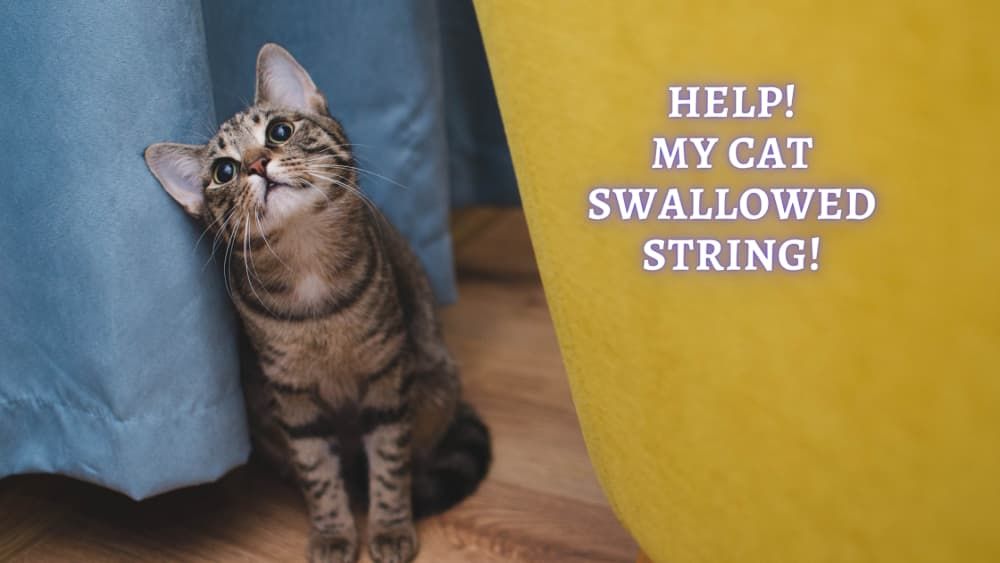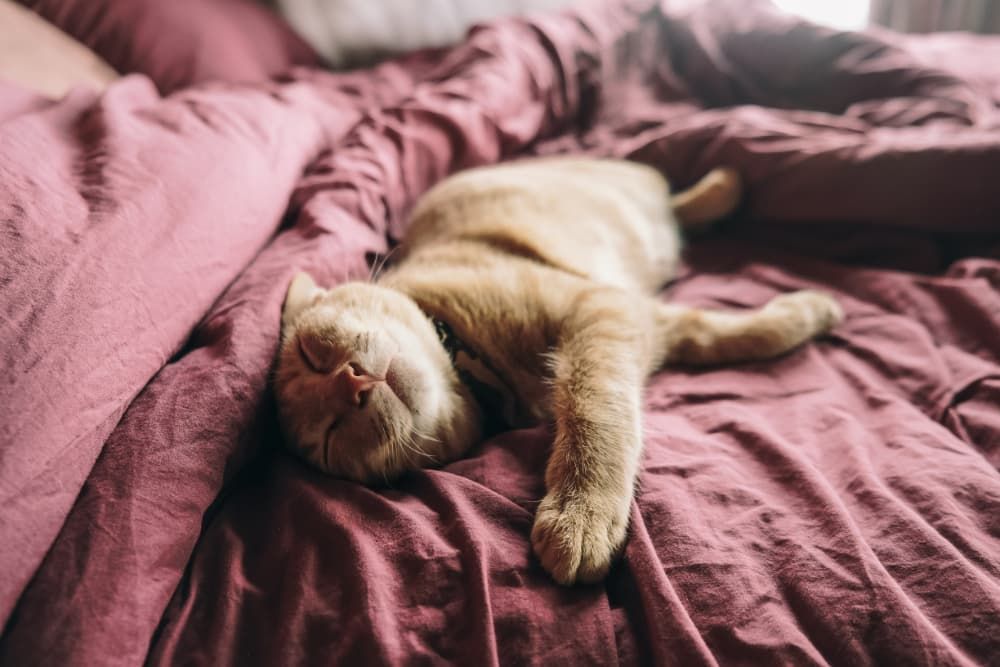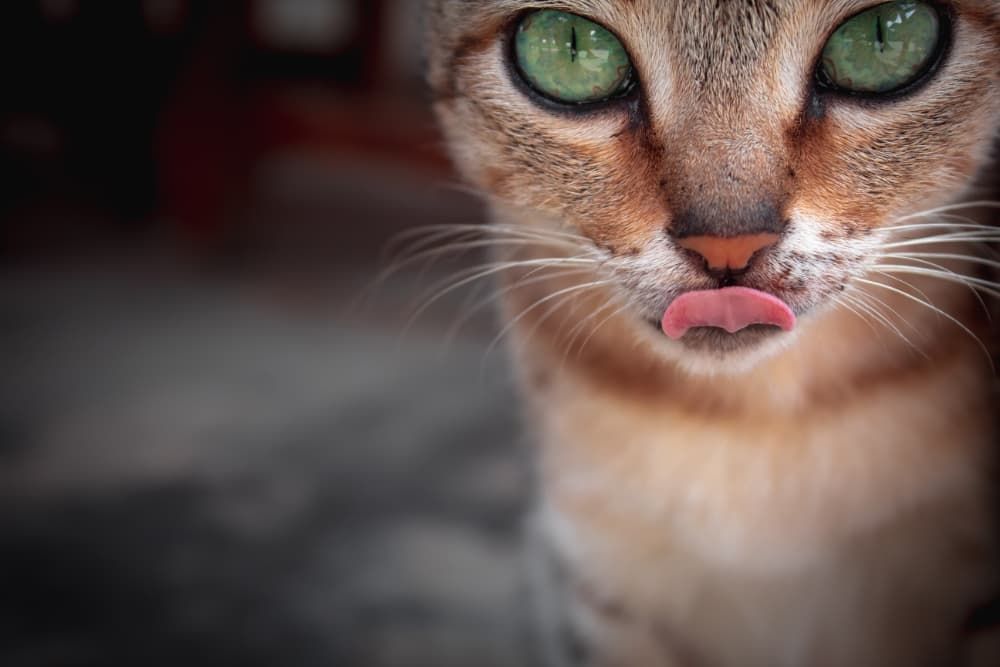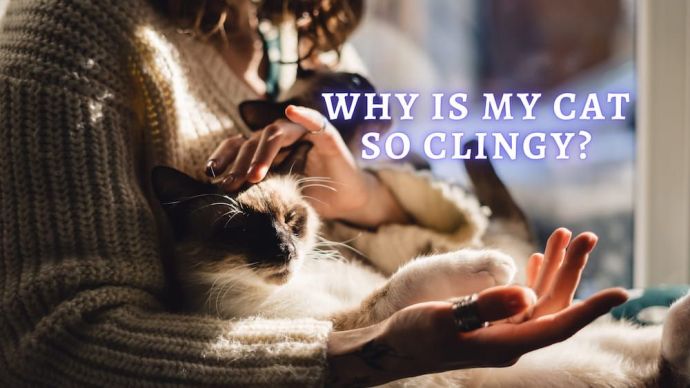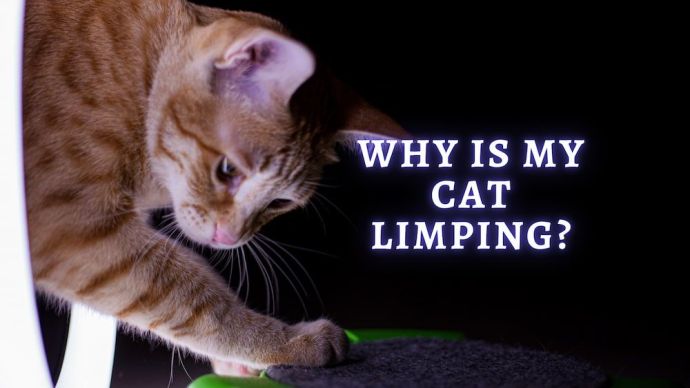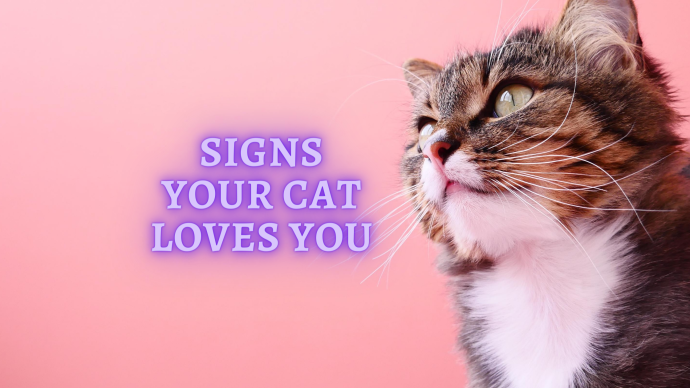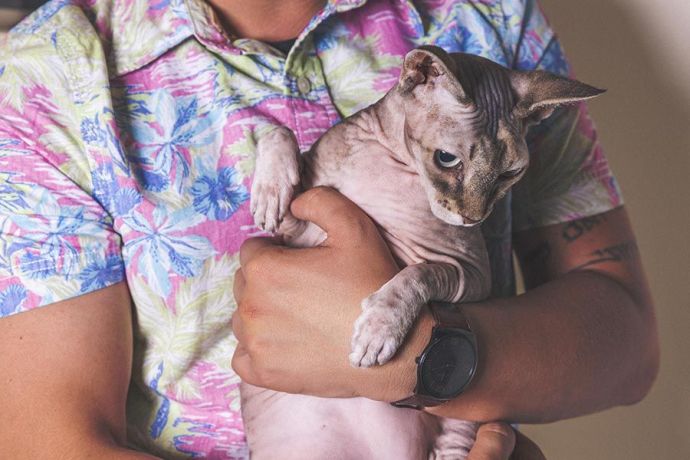Cat Swallowed String: Dangers, Signs and Treatments
Written by:
Author: Vicki Smirnova
Vicki Smirnova is a professional writer and editor who adores animals and helps readers get along well with their pets. She has been working in digital media for more than 5 years and has great experience writing content about lifestyle, including pets. Vicki specializes in dog health and nutrition, cat feeding, dog training. She is an aquarium lover and is passionate to write about fish care at home. Also, Vicki headed several websites and worked as a news editor.
View all 245 articlesLearn about our editorial process and veterinary review board.
Reviewed by:
Veterinary review
by Dr. Sara Ochoa
Dr. Sara Redding Ochoa is a veterinarian with many years of experience and higher education. During her time in veterinary school she was able to learn form some of the most well-known veterinarians from all over the world. Sara lives happily with her husband Greg and her babies Ruby the schnoodle, and Bam-Bam her bunny. Dr. Sara Redding Ochoa has a passion and love for animals that makes her a wonderful asset to our team.
View all 13 articlesLearn about our veterinary review board
Viewed: 1227
Updated on: 01/10/2023
Cats are curious animals and eat thread, rope, and Christmas tinsel. They don’t understand all the risks associated with this behavior. Their tongue is covered with hard villi, which are directed so that if something gets into the mouth of the cat, it may not be able to spit it out and would be forced to swallow.
Dangerous of a Blockage in a Cat
A foreign, non-food product that has entered the cat’s esophagus is highly undesirable in the body of your furry pet. Thus, if the tip of a thread or, for example, Christmas tinsel gets into the cat’s mouth, it can swallow up to several meters of its length. This can cause intestinal blockage and is very dangerous for the animal. Violation of the gastrointestinal tract’s motor function occurs in 80% of cases when a foreign body enters the gastrointestinal tract.
Read more: Best Toys for Cats
Clinical Signs of Gastrointestinal Obstruction
1. Vomiting
Vomiting is associated with something stuck in the stomach or small intestines. Since something is stuck, there is nowhere for food and fluid to move to, vomiting causes. Food and fluid accumulate in the stomach as your cat continues to eat. Digested food gets stuck in the outflow of the stomach or small intestines.
This food will mix with the stomach juice, which causes overfilling digestive tract and leads to repeated vomiting. If your cat continues to vomit, it can quickly become dehydration. Your cat will often continue to try to drink or eat, which will only worsen these issues.
READ MORE: Best Food for Sensitive Stomachs
2. Refusal to eat
Your furry friend will often not want to eat because this obstruction limits food and water moving thru your cat’s intestines. Your cat may act like they want to eat but does not even accept its favorite treat, which is because of nausea they are feeling.
3. Increase the size of your cat’s abdomen
This is due to the accumulation of fluid excreted into the gut—the organ stretches its walls, and the stomach size increases. This causes significant discomfort and sharp pain. The formation of gases can also cause your cat’s stomach to increase in size. This is associated with the growth of typical microorganisms inside the abdomen. This is the result of the accumulation of decay products.
4. Unsuccessful repeated attempts to defecate
The pet often goes to the toilet to get rid of the discomfort. Unfortunately, attempts do not bring a positive result but only increase the pain inside the abdomen. If something is stuck in the intestines, then nothing can move thru, causing it to be unable to have a successful bowl movement.
One or more of these signs in your pet are considered serious signals for contacting a veterinarian. Attempting to alleviate a blockage can lead to your cat becoming very sick and even cause them to suffer even more. If you notice any of these issues, it is best to immediately see your vet.
Treatment
Following an examination and a history of your cats’ recent signs, treatment of intestinal obstruction is carried out.
During the initial examination, your veterinarian will feel your cat’s stomach. When your vet feels your cat’s stomach, your cat may make a low grunting noise, or your veterinarian may even feel where a foreign object is stuck in their intestines. Follow-up actions to clarify the diagnosis include the following studies:
- Radiography;
- Barium radiograph with the use of contrast agents
- Ultrasound
The next step is to collect samples for blood and urine test. These tests will help assess the inflammation level and ensure your cat is healthy enough for surgery.
After these tests, your vet will determine if your cat needs surgery to correct the obstruction or if it can be treated with medication.
The pet may be given anti-pain medications and anti-inflammatory drugs to eliminate secondary symptoms. If your cat is severely dehydrated, it may be kept in the hospital with IV fluids until they recover.
If your pet needs surgery to remove the foreign object, this operation will be performed under general anesthesia. Your furry pet will often have to stay in the hospital for a few days after surgery until they have recovered. After your furry friend has recovered, they will be allowed to go home for you to continue to medicate and treat until they are fully back to their usual self.
The patient should not be given food or water for 24 hours after surgery. The first time you fed them, it is best to provide them with a small amount of very soft or pureed wet food. The cat should be provided with complete rest so that the incisions do not come open.
When your cat is in the hospital, they are given IV fluids to help keep them hydrated, preventing them from becoming dehydrated.
After surgery, it needs to prescribe a course of antibiotics. You will need to give these oral pills or liquids a few times each day. Such medications do not allow the spread of bacteria in the body.
Nutrition is very essential for restoring the health of your cat. In addition to medicines, food must contain all the elements necessary for the body. Only dietary products are allowed at this time, and it is best to save the treats for when your cat is typical. The best way to restore digestion is with good nutrition – such products will provide your pet with essential fiber and useful vitamins.
The portions of food that you feed your cat should be small. This will help their intestines heal and allow you not to overload their digestive system, and this helps ensure the free passage of food within the intestines.
How to help a Cat who Swallowed a string
The best thing for a pet owner to do to treat a cat who has swallowed a string is to try to prevent this situation from occurring in the first place. Look for anything that they may eat, such as thread, yarn, and rope. Cats love to selflessly chew threads sticking out of bedspreads and clothes, so you need to remove all such lines. Items of needlework should be kept out of the animal’s reach and not leave the cat alone with balls and threads.
If your cat eats a thread and managed to see them in the act, you need to immediately help the pet. The animal itself will have a hard time spit out the object due to its tongue’s structure, the roughness of which prevents something from falling out of the oral cavity. Therefore, when you find your pet eating a thread, you need to step in and perform the following actions:
- Take the animal so that it does not resist and, if possible, does not harm the owner.
- Gently open your cat’s mouth.
- Carefully remove the thread with your fingers if it remains on the tongue.
- In this situation, you cannot delay because you cat may quickly swallow this inedible food.
READ MORE: Why Does a Cat Stick Tongue Out
If your pet has eaten a thread or string, you need to help him. Eating a string can lead to many complications. When your cat’s condition does not change, it remains active and playful; they can pass this foreign object at home. If there are changes in behavior, this is a reason to visit a veterinary clinic.
If the pet swallowed the thread, it could be dangerous for the cat, mostly if the thread was thick, long, or hard. Often, the ingestion of such a foreign object in the animal’s body causes them to vomit.
If some time has passed since the threads were swallowed, they probably reached the cat’s intestines. In this case, giving some hair ball medication can help them pass the foreign object. This will facilitate the passage of a foreign body through the cat’s intestines.
At the same time, it is best to feed some wet food to also help them try to pass this thread. When the threads start to come out naturally, do not pull them! It is extremely dangerous for the animal because it can injure the insides of the cat. You can only cut off the end of the thread sticking out from under the tail.
If the cat vomits, refuses food and water, and clearly looks ill, then you need to visit the veterinary clinic as soon as possible. The vet can remove the foreign body with an endoscope if it is still in the stomach. If the thread reached the intestines and caused an obstruction, your cat will need surgery to remove a foreign body from their intestines. Most cats tolerate such procedures very well.
FAQ
What are the symptoms of a blockage?
The key symptoms of blockage are vomiting and not eating. Besides, other symptoms may indicate blockage:
- A forced posture (the animal adopts an unnatural position of the body).
- Painful abdomen (abdominal wall) when you put light pressure on it.
- Sometimes uncharacteristic moans.
- There may be a large amount of mucus instead of feces.
- Reduced or complete lack of appetite and water consumption.
- A decrease in body temperature.
- An increase in the size of the abdomen, and difficulty breathing.
Can cats poop out string?
This depends on the length of the swallowed string. If the string is small, it may comes out naturally without problems. If they ate a thicker piece of string then they may have issues passing this.
Is it bad for cats to eat string?
If a cat gets the tip of a thread or, for example, Christmas tinsel in its mouth, it can swallow up to several meters of its length. This can cause intestinal blockage and is therefore very dangerous for your cat.
What happens if my cat swallowed a string?
If the length of the string is small, it may pass this string naturally. But if your cat’s condition worsens, you need to contact a veterinarian. You should think about visiting a veterinary clinic if the cat shows the following symptoms.
- loss of appetite, refusal of water;
- constant nausea, vomiting;
- problems with pooping(diarrhea, constipation);
- pain in the abdominal region;
- drooling, frequent swallowing;
- lethargy and inactivity.
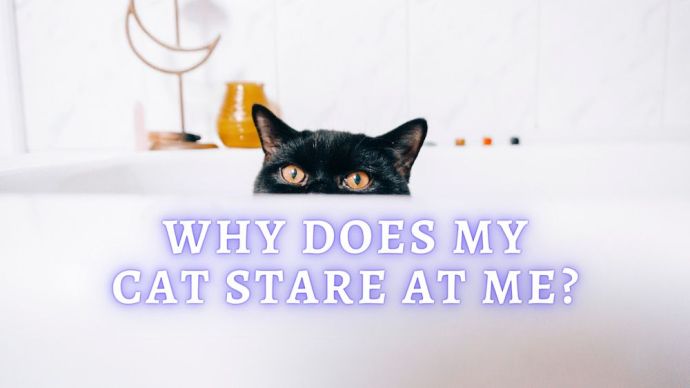 Cat Care Why Does My Cat Stare At Me? Cats Behavior and Body Language Explanation
Cat Care Why Does My Cat Stare At Me? Cats Behavior and Body Language Explanation - 192
- 0
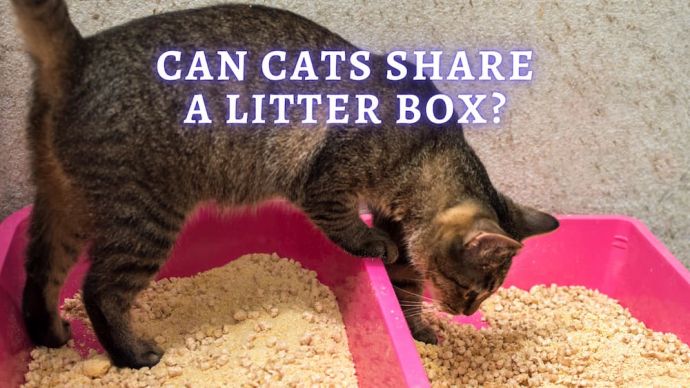 Cat Care Can Cats Share a Litter Box? How Many Boxes Should Be in a Multi-Cat House?
Cat Care Can Cats Share a Litter Box? How Many Boxes Should Be in a Multi-Cat House? - 218
- 1
 Cat Care Why Does My Cat Attack My Legs? 10 Reasons Why and What To Do About It (Vet-Approved Advice)
Cat Care Why Does My Cat Attack My Legs? 10 Reasons Why and What To Do About It (Vet-Approved Advice) - 45568
- 21
 Cat Veterinary Tips Cat Stomach Gurgling: Vet Advice on Why is Your Cat Stomach Gurgling?
Cat Veterinary Tips Cat Stomach Gurgling: Vet Advice on Why is Your Cat Stomach Gurgling? - 35344
- 4
 Cat Veterinary Tips My Cat Lost its Voice: Can Cats get Laryngitis? (Vet Advice)
Cat Veterinary Tips My Cat Lost its Voice: Can Cats get Laryngitis? (Vet Advice) - 23247
- 13









